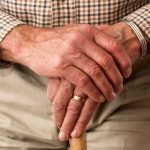Overactive bladder linked to higher falling risk in older people
In a new study from the University of Alberta, researchers found that urinary incontinence could be a contributing factor in falls among older adults.
They...
Scientists find cause of heart damage in COVID-19
In a new study from Yale, researchers examined autopsy tissue samples of hearts from patients who died early in the COVID-19 pandemic.
Frequent and extensive...
This existing drug can prevent COVID death
In a recent study published in The Lancet, researchers found an inexpensive repurposed drug called fluvoxamine can save the lives of COVID-19 patients and cut...
Heart attack deaths more likely during winter holiday season
Scientific research over time has shown an uptick in cardiac events during the winter holiday season, and more people die from heart attacks between December 25th and January 1st than...
Nose could be the key to treating severe COVID-19
In a new study from Newcastle University, researchers have shed new light on early events in the battle between COVID-19 and the immune system...
Colon cancer screening should start at age 45 years
In a new recommendation from the University of Colorado, researchers found average-risk colorectal cancer (CRC) screening should start at age 45 years.
They updated 2017...
How COVID-19 pandemic impacted U.S. blood pressure health
In a new study from the Cleveland Clinic, researchers found blood pressure levels rose among U.S. adults after the pandemic-related shutdowns of spring 2020.
They...
Scientists find a new treatment for blood cancer
In a new study from Karolinska Institutet, researchers have developed a new kind of immunotherapy for leukemia.
They found that the therapy kills cancer cells...
This eye surgery may reduce dementia risk
In a new study from Kaiser Permanente Washington, researchers found cataracts affect most older adults at risk for dementia, and cataract surgery is associated...
Air pollution linked to this dangerous liver disease, study finds
Metabolic-associated fatty liver disease (MAFLD) is a growing global health challenge and poses a substantial economic burden.
In a new study from West China Fourth...










